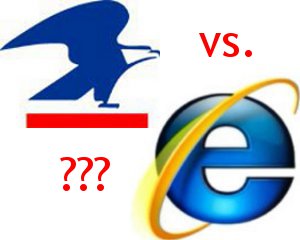
Sen. Lieberman reintroduced his ‘Protecting Cyberspace as a National Asset Act of 2010’ this week. The bill has been widely dubbed the Internet Kill-Switch Bill, and its reemergence unintentionally coincided with Egypt shutting off its own Internet connection. Egypt is back online today, but debate rages anew over whether or not the President should have the power to shutdown the web. What’s being widely ignored is that Lieberman’s bill doesn’t really provide the President with that power. Rather it broadens the power he already has to make the Internet go dark.
Under the Communications Act of 1934 the President has very broad power to shut off any or all wired or radio communications networks in the event of war or even the threat of war. This would include throttling the Internet. Lieberman’s bill would broaden the definition of threats to explicitly include cyber-threats, But it’s not at all clear this power doesn’t already exist.
Over the last decade the threat of terrorist acts have widely been accepted politically as existential threats to America. Clearly, a major attack on our communications networks would be considered an act of terror, and the threat of such an attack would allow the President a great deal of latitude to prevent such an attack, including shutting down parts or all of the network. Lieberman’s proposal does little to change the scope of executive power in such a situation.
However, the bill’s primary purpose is to create a plan that would force the private providers of critical digital networks to come up with ways of managing their traffic in the event that something bad happens. Is that a good thing? Yes, in the sense that any competent network should have plans in place to deal with cyber-attacks. Yet there are already ample incentives for any private provider to have such plans in place. Lieberman’s proposal would legislate what is already considered standard practice. While the bill doesn’t obviously do much harm, it doesn’t do any obvious good either. And it does create additional federal bureaucracy, which would seem ill-advised at a time when both sides are looking for ways to cut administrative expenses.
While Lieberman’s bill doesn’t create an Internet Kill-Switch, the specter of Obama having a big red button on his desk that would sever the web looms large in the minds of conservatives and liberals alike. Yet this nervousness is ill-founded. Such a button does not exist. The mechanisms by which the government would shut off the Internet would be that it would have to coerce or demand the cooperation of private telecommunications providers to cut off their external network connections. The sheer number of companies managing such extra-national networks makes such a prospect considerably larger than Mubarak’s turn down of the three Egyptian ISPs. It would take days to weeks for the government to effectively kill the American Internet, if it was possible at all—and more than enough time for any particular cyber-attack to do its damage. Further, the prospect of a President getting widespread ISP cooperation to execute an Egypt-style quelling of popular dissent is even more remote. The “kill-switch” as a defensive measure is neither practical or effective.
If people are truly concerned about the Internet remaining a free and open means of communication for everyone, they should be supporting true Net Neutrality legislation, not fretting about mythical kill-switches.


